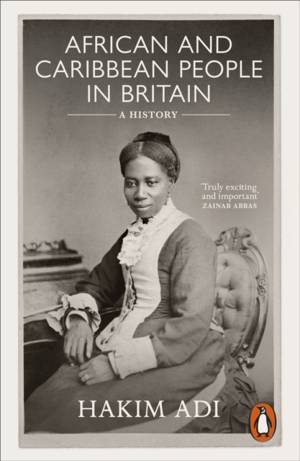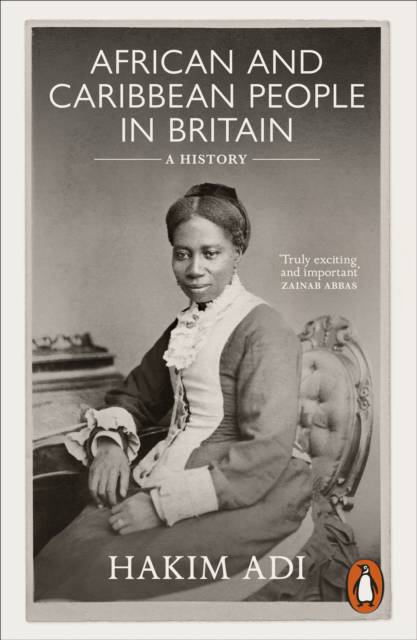
Bedankt voor het vertrouwen het afgelopen jaar! Om jou te bedanken bieden we GRATIS verzending (in België) aan op alles gedurende de hele maand januari.
- Afhalen na 1 uur in een winkel met voorraad
- In januari gratis thuislevering in België
- Ruim aanbod met 7 miljoen producten
Bedankt voor het vertrouwen het afgelopen jaar! Om jou te bedanken bieden we GRATIS verzending (in België) aan op alles gedurende de hele maand januari.
- Afhalen na 1 uur in een winkel met voorraad
- In januari gratis thuislevering in België
- Ruim aanbod met 7 miljoen producten
Zoeken
Omschrijving
Despite the best efforts of researchers and campaigners, there remains today a steadfast tendency to reduce the history of African and Caribbean people in Britain to a simple story: it is one that begins in 1948 with the arrival of a single ship, the Empire Windrush, and continues mostly apart from a distinct British history, overlapping only on occasion amid grotesque injustice or pioneering protest. Yet, as acclaimed historian Hakim Adi demonstrates, from the very beginning, from the moment humans first stood on this rainy isle, there have been African and Caribbean men and women set at Britain's heart. Libyan legionaries patrolled Hadrian's Wall while Rome's first 'African Emperor' died in York. In Elizabethan England, 'Black Tudors' served in the land's most eminent households while intrepid African explorers helped Sir Francis Drake to circumnavigate the globe. And, as Britain became a major colonial and commercial power, it was African and Caribbean people who led the radical struggle for freedom - a struggle which raged throughout the twentieth century and continues today in Black Lives Matter campaigns.
Specificaties
Betrokkenen
- Auteur(s):
- Uitgeverij:
Inhoud
- Aantal bladzijden:
- 448
- Taal:
- Engels
Eigenschappen
- Productcode (EAN):
- 9781802060683
- Verschijningsdatum:
- 1/12/2023
- Uitvoering:
- Paperback
- Formaat:
- Trade paperback (VS)
- Afmetingen:
- 128 mm x 204 mm
- Gewicht:
- 439 g

Alleen bij Standaard Boekhandel
+ 53 punten op je klantenkaart van Standaard Boekhandel
Beoordelingen
We publiceren alleen reviews die voldoen aan de voorwaarden voor reviews. Bekijk onze voorwaarden voor reviews.









